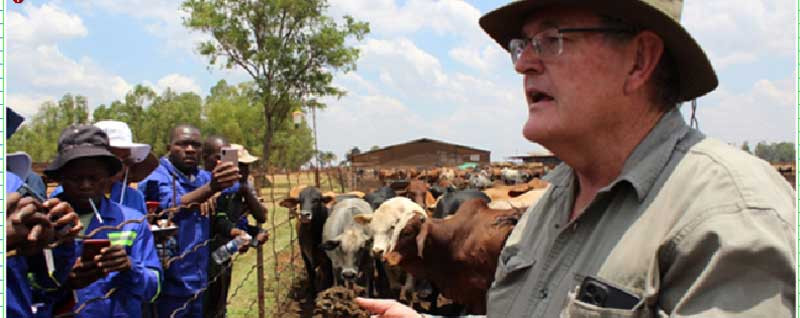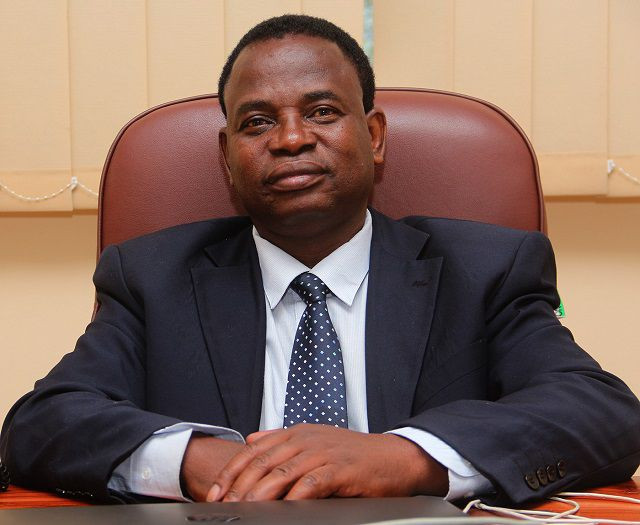
REFLECTING on a recent field learning encounter that I participated in, I always come back to the same picture. It is a freak of timing: frozen in time is Alan York in mid-flow, stressing a point while unselfconsciously holding in both hands pieces of fresh cow-dung as if it was the most natural thing to do.
In front of him, 20 young people stood enthralled while all around him cattle seemed to stand to attention like soldiers on a parade. This man understands cattle, I remember thinking.
The idea of York conducting a master class in beef pen fattening really started as a “professor” joke a couple of weeks back when he visited my office and gave his name to the security guard as ‘Professor’York. Back then we just laughed about it.
Then a couple of days later, a colleague in the Department of Agricultural Education requested me to teachpart of his beef production course for final year Diploma students as a guest lecturer.
I did not hesitate:20 years ago, my own professional journey started off as a student in agricultural education.
But after a few lectures, I felt that I had a problem. I was spending an inordinate amount of time describing things: body condition scoring; nutrition; health; breeds and breeding; production systems and stuff like that. I was telling the young men and women what beef production is all about, when what I really needed to do was show them how things worked.
The college environment itself didnot help much: there was just not enough productive activity to help with real teaching.
That is when I remembered ‘Professor’ York. In no time, he not only agreed to host the students, but he volunteered the use of his own transport and on Saturday October 21 2023, 20 eager students and their borrowed teacher made the short trip to Komani Estates in Mazowe.
York is a bona-fide cattle man.He runs the core of his intensive beef fattening business on seven hectares rented at Komani Estates. He also rents other pieces of land wherever he can find it.Certainly he is no rookie in beef: during the CSC heydays pre-land reform, Yorkonce won an award for the highest beef offtake to the EU market.
Then the land grabshappened and his life was plunged into turmoil. In his telling: “I took stock of myself. I had two choices: to cry about my misfortune or try to navigate my new terrain starting with what I had in hand”.
Determined to “stick to my knitting” he opened a butchery on Rezende Street and then iteratively built a pen fattening business concept around the butchery.
Always start with the market, he advises the students. The market determines what you produce. The margins are small in farming, but if you are an efficient producer, and you maximise on numbers, you can make money.
Weaving biography and science, storytelling and didactic nous, York delivered a masterclass on commercial beef business.
For almost three hours, he poured forth wisdom from the School of Hard Knocks.
The students even participated in ‘cooking’ an afternoon feed ration for the cattle. They got to feel, touch and smell real cattle.
Finally it was time to go. Awkward words by young people learning to negotiate their space in the world.
They had probably made some of the first contacts with people who could matter in their futures. A tentative network established. Who knows what the future holds? Maybe all of us had contributed to an outline of a future training ecosystem? A chap from the local university joining hands with a local farmer to design learning opportunities to local college students is not an everyday occurrence.
After arriving home, I sent a thank you text to York. He responded with a clap emoji and “You do more than your share for others…it’s what makes the world go round…”
If the core of a person is partially revealed through his performance in roles, then I realisethat York doesnot only understand cattle. He also understands people. His story is not only a master class in learning to negotiate change, but also a commitment to influencing his community in a more humane direction.
- Magwiroto is a freelance journalist and lecturer at the University of Zimbabwe, Department of Community and Social Development, Faculty of Social and Behavioural Sciences







